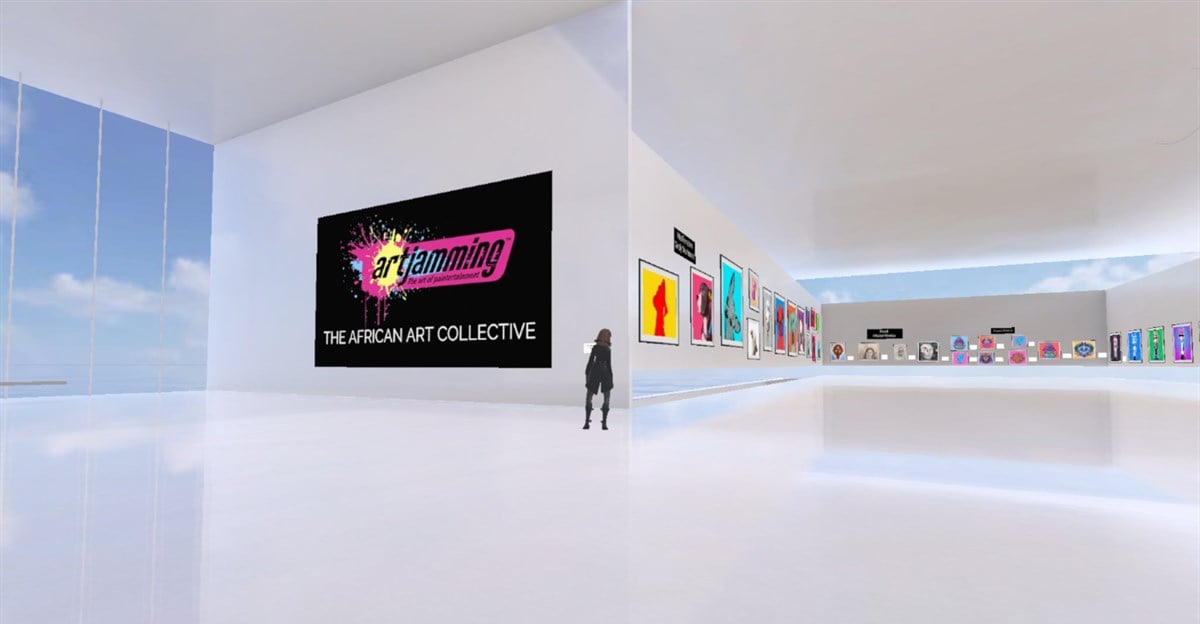
Immersing Africa in the world of NFT art
An NFT is a non-fungible token, a unique digital identifier that cannot be copied, substituted, or subdivided, that is recorded in a blockchain, and that is used to certify authenticity and ownership.
“NFTs and Web3.0 are hugely male-dominated industries. We are some of the few women in this industry and we hope to encourage more women to join us in this very exciting journey,” Hessen says.
We spoke with her to find out more about how she started out and what the African NFT Art Collective truly has to offer…
Tell us a bit more about the work that you do – how did systems analysis and fashion collide?
At university, I did a BCom degree in programming and systems analysis and design. I had grown up in the fashion industry as my family had always been involved in fashion.
While I was still studying, I worked part-time in my parent’s textile business. They needed to be more productive and I wrote some programmes for the business helping to automate the stock and ordering processes. This was during a time when faxes were considered cutting-edge!
My passion has always been for art and fashion so I stayed in the fashion industry for about 25 years. Together with my partner, we started Artjamming at the same time – and this has given me a huge insight into the art industry. I have worked with so many emerging artists over the past 14 years, and I am pleased to say that many of the young artists that started their careers at Artjamming have gone on to build up fantastic art careers.
What is the value, in your opinion, in expanding the NFT market in South Africa?
The NFT market allows artists to showcase their work globally. They have the ability to set their own prices and target their own audiences. For me, it is so exciting that an artist sitting in South Africa could be seen by a customer sitting in Finland, for example.
The NFT market is a rapidly evolving market and will also provide showcase opportunities for other industries and brands. Right now we are working with artists and musicians and there is so much more we can do using blockchain technology.
Tell us a bit more about what African NFT Art Collective is and what inspired its inception.
When I first started researching the NFT market at the beginning of 2020, I realised very quickly that this would be the start of an alternative way to navigate around the online world and the start of integrating art with real-world benefits and proof of ownership.
I also don’t see NFTs as a stand-alone concept. NFTs are becoming integral in Web3.0, and the two go hand in hand.
What inspired me to start the African NFT Art Collective? After chatting to many artists (established and emerging), I realised that it was not an easy concept to grasp if this was completely new to them. As an artist, the tech world can be very daunting. NFTs were starting to become a buzz word but not many artists understood the actual process of minting their art.
In this country, we are also faced with many challenges such as expensive internet access, unreliable connectivity, lack of understanding, and, of course, no consistent supply of electricity. The African NFT Art Collective is set up to overcome all these challenges and help the artist through the process from start to finish.
Since NFTs are a fairly unknown thing still, how do you plan on making sure the artists involved are fully prepared to work with Artjamming?
We have set up an educational aspect to our business: This is called NFTy-Art. We have created an educational programme that takes you through the concept of NFTs and everything around them.
We offer real-life classes for anyone wanting to learn about this concept through a fun and engaging process. We also offer the option of “plug and play”: You provide the artwork and by joining the Collective, we get you to market. The artist does not need to do anything else.
What impact are you hoping to make with this project?
Through our educational programmes, we would like to remove the fear and uncertainty surrounding NFTs and Web3.0. There is no reason that artists should be excluded from this space.
One other big advantage that we have, is that we actually exist in real locations. The big risk in working in the virtual world is that you often don’t know who you can trust. There are so many people claiming to be experts and when things go wrong it’s hard to find them.
We do not claim to be the leading experts in this field, as it is evolving so quickly. But we do have solid training and integrity.
This content was originally published here.

